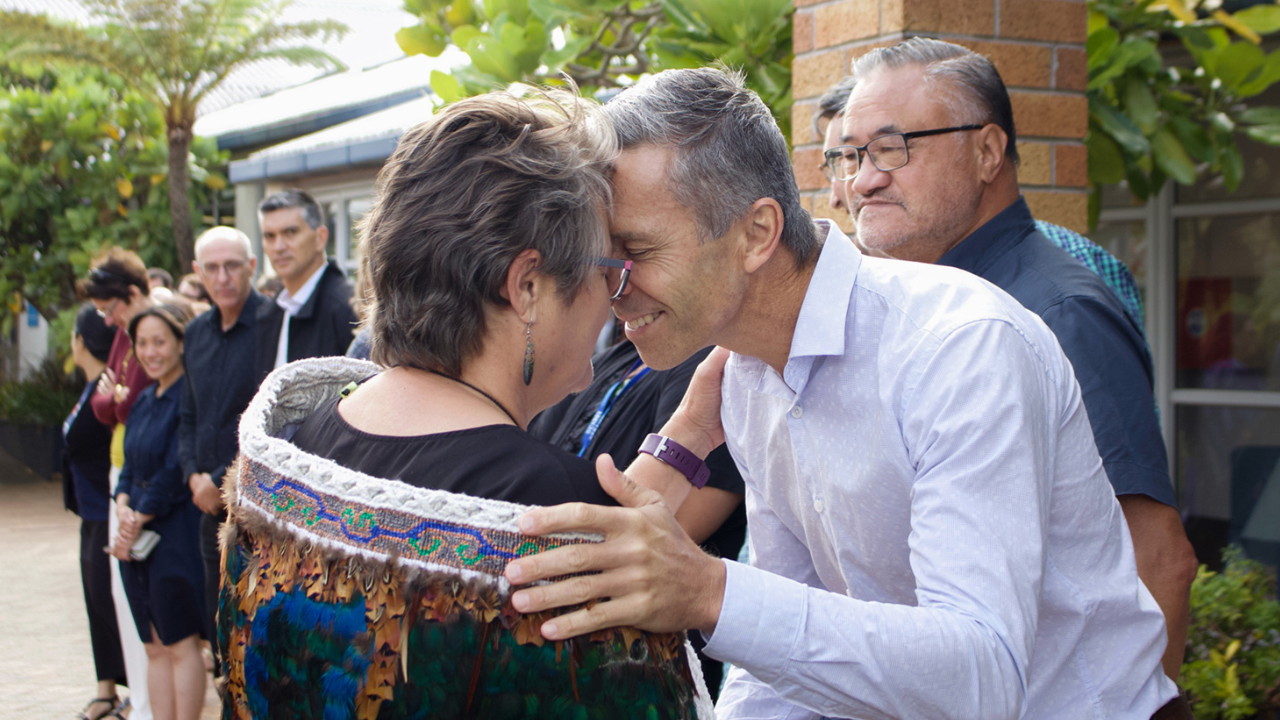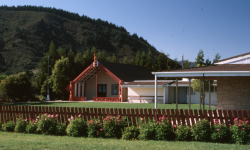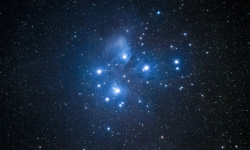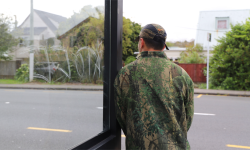
Greg Motu is the recipient of the Lionel Stewart scholarship for 2019. The scholarship supports Baptist leaders in the pursuit of bicultural reconciliation. He shares his thoughts on biculturalism and the church.
I am defining biculturalism as being between Mu0101ori and Pu0101kehu0101 as the founding peoples of Aotearoa New Zealand. Other peoples who have settled in this land are now a part of our national family, but when there is discord amongst siblings (Mu0101ori and Pu0101kehu0101) it impacts the whole family.
Two worlds meet
My father is from the tribes of Ngu0101 Puhi, north of Auckland, and also the Waikato tribes in Auckland and to the south. My motheru2019s Swiss ancestors settled in New Plymouth, South Taranaki and Whanganui. Her Irish family initially settled in the Waikato.
Dadu2019s grandmother raised him. She had adopted and raised several grandchildren and extended family members. Theirs was a subsistence life, living off her small widowu2019s pension and gathering wild food.
Dad was strapped for speaking Mu0101ori at school and consequently did not speak it at home. I didnu2019t realise he could speak Mu0101ori until some relatives came up to him at a rugby game and started talking with him.
Mumu2019s upbringing was worlds apart. Her Irish Catholic mother sent her and her siblings to convent school in Freemans Bay. My grandfather, the son of Swiss immigrants, had moved from Taranaki and worked for the Crown Lynn pottery factory in New Lynn.
These two worlds met in our household in Manurewa, South Auckland. My mother set the direction and culture of our household. My father would defer to her because, being Pu0101kehu0101, she knew how things worked in this u2018Pu0101kehu0101 worldu2019.
Dadu2019s culture was always enigmatic; we lived urban lives and visited most often with my motheru2019s family in West Auckland. We never really fully engaged with Dadu2019s wider whu0101nau. So we grew up knowing we were Mu0101ori but disconnected from the culture and language from that side of our family.
What am I?
When I was in my teens I actively began to explore what it was to be Mu0101ori. I was looked at as a Mu0101ori and was uncomfortable not even knowing what that meant. So I threw myself into learning what it was to be Mu0101ori. And for me that was through kapa haka. It was a world where being Mu0101ori was normal and was full of positive role models. It was encouraging and supportive and modelled the best of what it was to be Mu0101ori. I learned to speak te reo and started connecting with my wider whu0101nau. It was all strange and new but exciting.
It also meant being exposed to a different story about New Zealand. It was a history of deceit, greed and broken promises by a government and society that was geared up to dismantle Mu0101ori culture, economy and social structures. I was angry, hurt and frustrated at the injustice of it all. I was so ashamed of being Pu0101kehu0101 and I didnu2019t want anything to do with it. I immersed myself further into the Mu0101ori world and was happy to be Mu0101ori.
Making peace
It wasnu2019t until my late 20s when I started working in a team that was made up of white New Zealanders that I was confronted with the need to be able to operate in a non-Mu0101ori world again.
I learnt to overcome my own sense of discomfort in an unfamiliar culture and accept that Pu0101kehu0101 people operate in a different way. I also needed to address my own prejudices and racism that I carried. Coming to terms with our own prejudice is more important than looking at the differences in othersu2014we all tend to see the faults in others before we look at our own.
As the founding cultures of modern Aotearoa New Zealand, Mu0101ori and Pu0101kehu0101 are connected to one another in this land through history and, in my case, through families. We owe it to future generations to make the bicultural relationship work. We need each other to prosper and flourish. I believe that is Godu2019s design and plan. We have to continue to respect and honour one another and any others who have come to call New Zealand home.
Baptist biculturalism
The first Baptist Assembly I attended was at Bethlehem in Tauranga in 2000. Assembly was strenuously debating the Treaty Affirmation Statement, which was eventually accepted. As a fairly new Christian, I was disappointed that acknowledging inequity and injustice was an issue even amongst Godu2019s people. There was a spirit of division along with ignorance, racism and oppression that was present amongst Baptists. Spiritually, this has afflicted our country, our churches and our relationships since earliest contact.
But I am hopeful for the future. A review of Baptist history (Auty, 2018)1 shows a faltering relationship with Mu0101ori up until the 1950s. However, since then the relationship has been growing and gathering momentum. I am grateful to the Pu0101kehu0101 pioneers of Baptist Mu0101ori Mission for the aroha they have given to Mu0101ori and Mu0101ori mission. And to the many people of faith, both Pu0101kehu0101 and Mu0101ori, who have contributed in many ways to building Mu0101ori capability within the Baptist family of churches.
Honouring Christ and each other
So how do we sit together in Christ, with this often difficult and uncomfortable history? We cannot continue to point out the speck in each otheru2019s eyes. Satan is the accuser of the brethren and has divided the body of Christ for 2000 years.
We need to consider one another continuously, be aware of our own prejudices and heart towards one another, accept the past for what it was, guard against division, and ensure tomorrow is better. Part of my own journey of reconciliation was coming to terms with the blood on our hands, both Mu0101ori and Pu0101kehu0101, which has defiled our land before God.
Praise God for the blood of Christ that is able to wash away our collective guilt. Praise him for the spirit of reconciliation where, in Christ, the land can be cleansed and we can be reconciled to one another as we are reconciled to our Father in heaven.
Prayer is needed; the enemy will try to sabotage what the Holy Spirit is wanting to build. We are living in a time of restoration and Peter said that heaven will keep Jesus u201cuntil the time comes for God to restore everythingu201d (Acts 3:21, NIV). This is the challenge that lies ahead of us. I donu2019t have all the answers but I am willing and I know that there are many more amongst us who are willing too.
Me whawhai tonu tu0101tou i te whawhai pai, mu014d ake tonu atu. Let us keep fighting the good fight.
Story: Greg Motu
Greg and his wife Leonnie pastor Hosanna Dannevirke Baptist Church. Greg belongs to the Ngu0101 Puhi and Waikato iwi and also has Swiss and Irish ancestry. He was raised in a mixed ethnicity household in South Auckland in the 70s and 80s.
Reference:
- Auty, Rawiri. u201cBaptist Mu0101ori Speak: Ko Ngu0101 Ku014drero o Ngai Mu0101ori Iriiri.u201d MAppTheol thesis. Carey Baptist College, 2018.
Scripture quotations taken from The Holy Bible, New International Versionu00ae NIVu00ae Copyright u00a9 1973 1978 1984 2011 by Biblica, Inc. TM Used by permission. All rights reserved worldwide.


